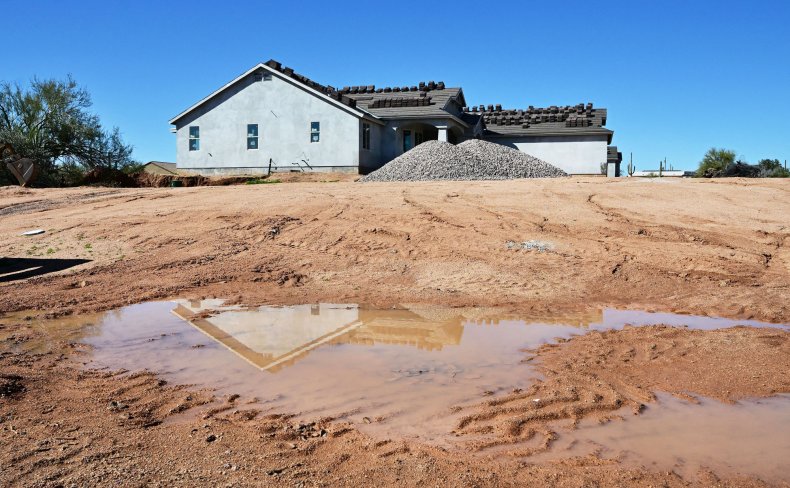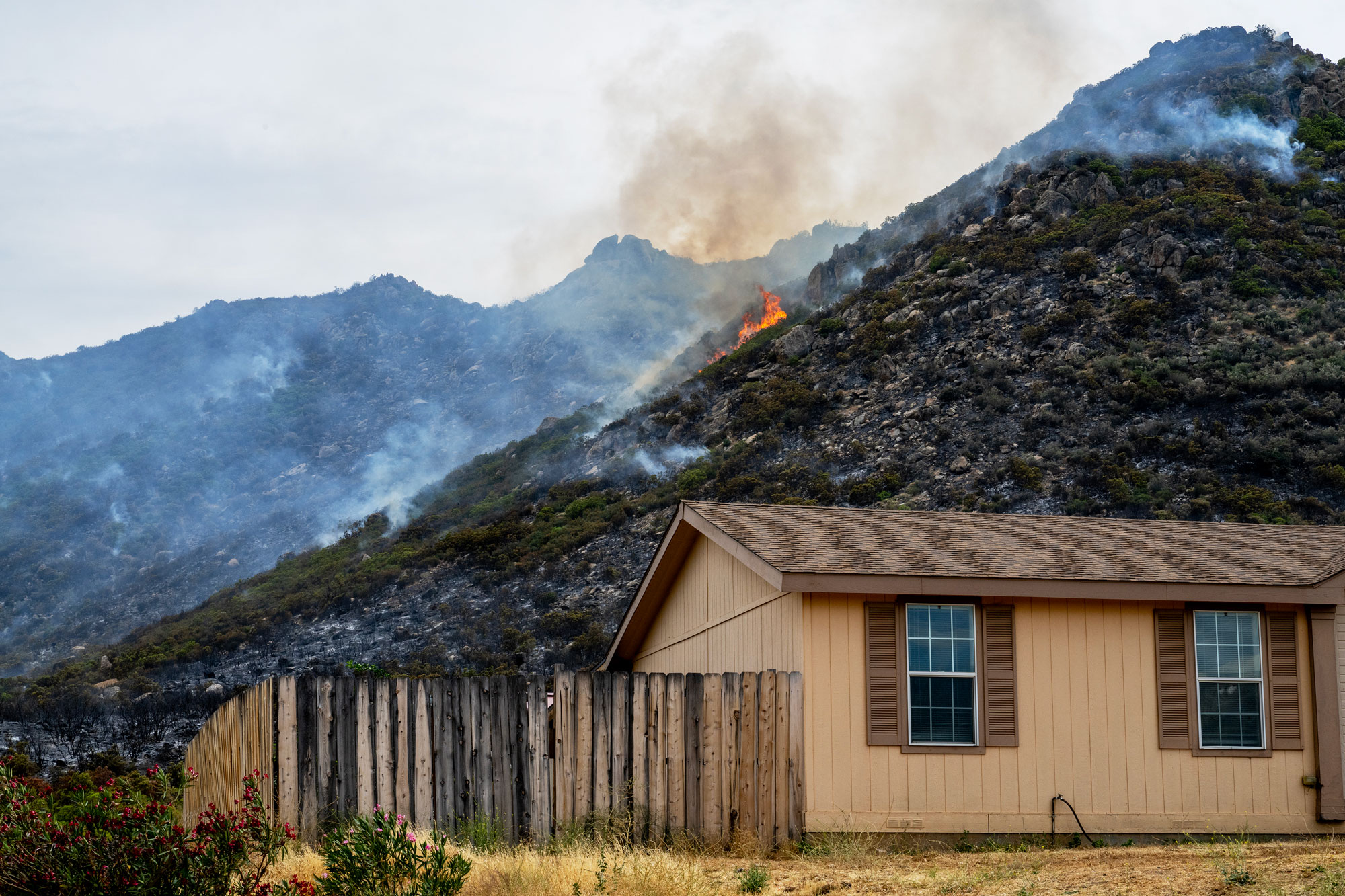A government shutdown is looming and if congressional lawmakers fail to strike a funding deal, homebuyers could have to push back closing dates in an already tight housing market.
The Federal Emergency Management Agency (FEMA) made a shocking announcement in December that its National Flood Insurance Program (NFIP) could no longer issue new policies during a funding lapse. NFIP is only funded through September 30 and a government shutdown could upend as many as 1,300 home closings each day.
"We can confirm that if not extended past the end of the fiscal year, the NFIP coverage will lapse," National Association of Home Builders Chairman Alicia Huey told Newsweek. "This will hurt countless homeowners across the nation who reside in flood-prone areas and rely on the NFIP to protect their properties against the risk of flooding. We are strongly pushing Congress to not let this lapse."
Millions of homeowners use the public flood insurance program to protect themselves against the financial risks of flooding, which can have devastating impacts on homeowners. Just one inch of floodwater can cause up to $25,000 in damage, according to FEMA.

Mark Friedlander, the director of corporate communications at the Insurance Information Institute, told Newsweek that while federal funding would still be available to pay for flood claims of current NFIP policyholders, a government shutdown would halt renewals on existing policies and new policies.
"This could also disrupt thousands of home sale closings where the mortgage requires flood coverage," Friedlander said.
Prospective home buyers are already facing difficult economic headwinds that have made it harder for Americans to buy property. Mortgage rates surged to a 21-year-high this week and there is little hope that the market will cool anytime soon. The steady demand for homes combined with low inventory prompted Goldman Sachs to revise its 2024 forecast to a 3.5 percent jump in home prices on Tuesday. NFIP could present further obstacles for buyers, including delaying their closings to the point their interest rates expire or preventing homeowners from getting a mortgage at all.
"If Congress does not act on this extension property buyers could lose financing or pay fees to hold interest rates as lapses threaten 1,300 property sales each day by NAR estimates," Kenny Parcell, president of the National Association of Realtors, told Newsweek.
Flooding has become increasingly common. Ninety percent of natural disasters in the United States involve flooding, and the rise of extreme weather has resulted in even more unexpected flooding across the nation. In July, severe storms and flash floods battered Vermont, Kentucky, Illinois and Alaska, damaging thousands of homes and businesses, according to the National Oceanic and Atmospheric Administration.
"Without access to flood insurance, millions of families must rely on federal disaster aid during hurricane season," Parcell said.
"The situation is concerning as we are in the midst of peak hurricane season, which typically generates significant flooding events in many areas of the U.S.," Friedlander said. "While there have been numerous proposals in Congress to extend NFIP funding for multiple years, we continue to only see short-term reauthorizations which is why we are facing this scenario again."
Senators Bob Menendez and Bill Cassidy and Representatives Frank Pallone and Clay Higgins introduced a bipartisan bill in June that would reauthorize NFIP for five years. The lawmakers say the legislation would provide "greater stability for homeowners, small business owners, and the real estate market as the nation continues to struggle with inflationary pressures."
"Congress can no longer afford to punt long-term reauthorization and reform of the NFIP," Menendez said in a press release.
"Millions of homeowners rely on NFIP as the only real option for flood insurance," Higgins said. "Reauthorization of NFIP is a necessity, and forcing Congress to address the serious problems of Risk Rating 2.0 is a priority."
Risk Rating 2.0 is the name of the NFIP's pricing methodology.
Representative Warren Davidson also introduced a bill in March that would reauthorize the program through December 31, 2024. Neither bill has received a vote, leaving the NFIP at risk if Congress can't come to an agreement on government funding by the end of September.








